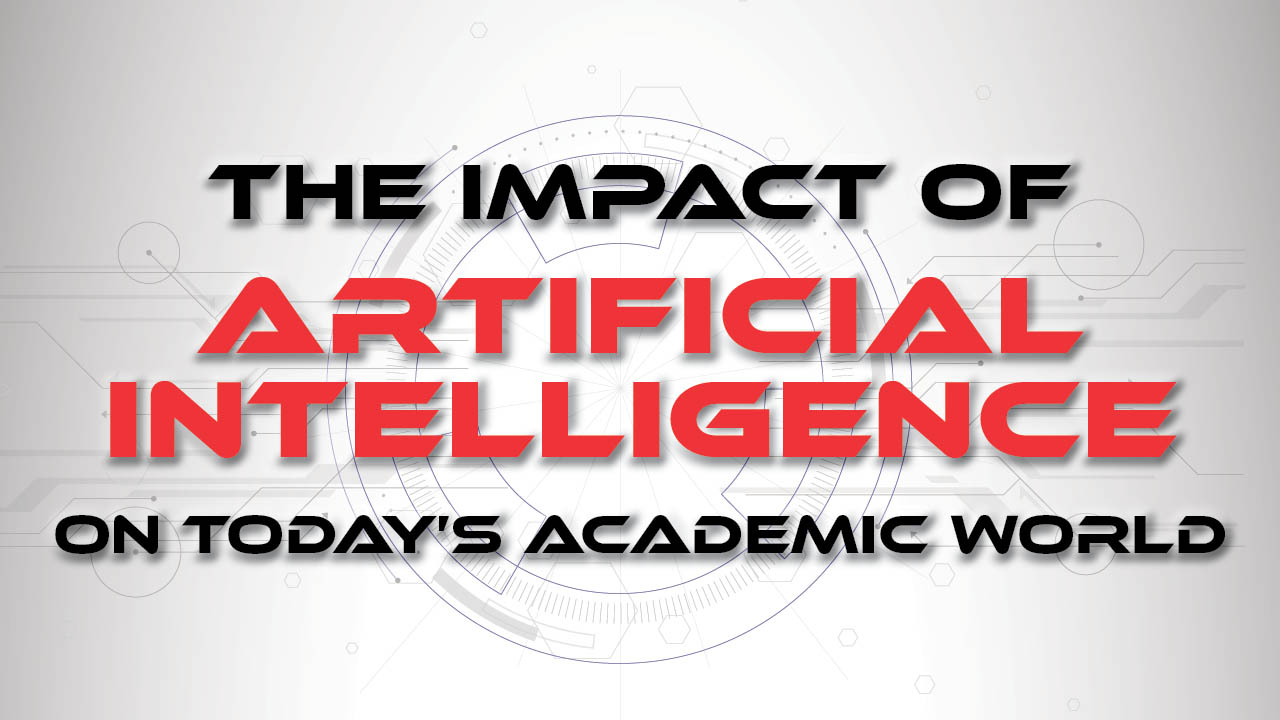The impact of artificial intelligence on today’s academic world
 CREDIT: FSU PUBLICATIONS AND COMMUNICATIONS DEPARTMENT
CREDIT: FSU PUBLICATIONS AND COMMUNICATIONS DEPARTMENTIn the 21st century, technology has evolved to a complex level in regards to its relationship with humans. Computers for instance, help people complete various different tasks and assist with organizing their day to day life. In school, students have started to make use of artificial intelligence (AI) in various ways for academic purposes. The question that remains is, can AI enhance students academically?
According to a study published on Springer.com, researchers found that 83.3 per cent of students who used the Canadian-based AI intelligent tutoring system, Korbit AI gave a positive reaction to the quality of assistance the program gave them. Over 183 participants took a course in conjunction with Korbit and found that the program’s “deep personalization” learning model offered an effective learning experience.
Students at Fanshawe use AI models, like ChatGPT, to help them take notes, brainstorm, and research information. Fanshawe student, Christian Armstrong used AI to help him write essay outlines and generate ideas when facing creative burnout.
“I use it for emails and for essays, I’d use it for an outline and to maybe get some ideas for it,” Armstrong said. “I think it’s pretty good, I mean it could be scary in terms of where it could go in the future, but it’s a great tool.”
Andrew Jason, a Fanshawe student, said he supports the use of AI assistance when students experience writer’s block as it can help jump start the natural process in getting ideas flowing.
“Sometimes we get some mental block, so when you’re doing essays and everything, at least when you’re using AI, you’re just getting a glimpse of some discussions and topics you could go with.”
Jason also mentioned that with the power AI brings, there are some who overuse its purposes. He suggested that limitations for its use should be introduced so that it’s fair for both students and professors.
“AI is abused, Sometimes they’re using it to do their homework and they’re completing it with ease which makes it unfair for both students and teachers.”
Armstrong agreed that having limitations in place will allow for those who find AI useful equal opportunity for its benefits in the classroom.
“Once there are certain limitations to maintain academic integrity, I think it can be useful.”
Both Armstrong and Jason agree that AI is a helpful tool for students, as it can create a more personalized experience for learning, so long as students don’t exploit it.
“It’s great, it’s innovative. When you type something into Google it just gives you links and everything where with AI it gives you a more personalized approach,” Jason said.
The Dean of Information Technology at Fanshawe College, Mary Pierce, described how although there are still some concerns, there is still a positive impact AI can have when used accordingly and mentioned how Fanshawe is jumping on board with the use of this tech.
“There’s a lot of really positive uses of AI for education purposes. There’s also some concerns, but there are a lot of very positive uses and there’s lots of very positive uses happening here at Fanshawe College,” Pierce said.
The school has been cooperating with various programs to see how specific industries are utilizing AI so that it can equip professors with tools that will assist them in teaching or evolve upon the current existing programs.
“We have many faculty who use it and we’ve been discussing this with our program advisors quite extensively and trying to find out how they’re using artificial intelligence in their industry. We’re trying to make sure that students in various programs also learn those skills on how to use it appropriately for a variety of industries,” Pierce said.
Pierce added that at the start of the fall semester, Fanshawe will be posting on all course outlines and guidelines directing students on how AI assistance in class is going to work in the classroom.
“It could possibly be used in [certain courses], but the students need to carefully and specifically verify with the professor what are the authorized and unauthorized use of AI in this course.”
The college has held seminars informing both faculty and students about how to effectively use AI while also maintaining academic integrity.
“There’s some great seminars being put on about how to effectively use AI in the classroom. There is a lot of work done on how we are managing this from an academic integrity perspective and how we decide when it is an academic offense and when it’s not an academic offense,” Pierce said.
Fanshawe also introduced AI on campus in other ways with the implementation of Oscar. Oscar is a robot that recognizes waste based on its materials that then shows students the proper waste bin to toss their garbage in. This is an effort from the college to assist in waste management and assure that materials are properly disposed of.

















